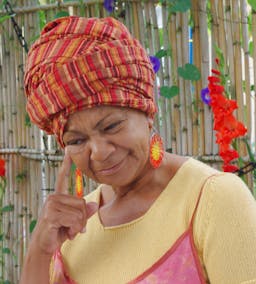Domestic Abuse in South Africa
Jan 21, 2015
Story

In S.Africa women are well represented in the government. Women make up 30% of parliament, which makes S.Africa one of the top countries for gender equality in government (www.makeeverywomancount.org)
Yet, when the Domestic violence Act was amended in 1999 so as to increase the amount of help available from police and courts, the S.African Government was sceptical as to whether it could fulfil the obligations under the Act…. and the welfare minister said he does not know where the money will come from for shelters for abused women and children.
The Research Council of S Africa has suggested that a woman is killed every six hours by an intimate partner. The Department of Justice estimates that 1 out of every four S.African women are survivors of domestic violence.
Many cases go unreported. And when reported, the police do not keep separate statistics on assault cases perpetrated by husbands or boyfriends.
And on top of that, many of the barriers to change come from us as women ourselves. Whereas many women are still unaware of their rights, even informed women are afraid of further violence if they attempt legal action.
And then there is culture.
'You made your bed, you must sleep on it" my mother said when I cried.
'What kind of woman are you, you don't run to the police with family problems,' said friends and family.
And in my head, I believed that children should be with their father – no matter how abusive he might be; a professional woman does not 'lower herself' by running to the police. She covers her scars with makeup. I could not face being without a second income by leaving my husband, so I kept quiet.
I now work with the Saartjie Baartman Centre for abused women and children in Cape Town, S.Africa (www.saartjiebaartmancentre.org.za ). It provides refuge, education, counselling, skills training, and legal support for abused women and children.
We do speak out but mainstream media are not really interested in reporting our stories. For example, The South Africa Clothesline Project, Silent No More, We’re Hanging Out Our Dirty Laundry: where t-shirts with our stories on them are hung in public spaces: www.isiswomen.org/pub/wia/wia302/silent.htm
A big challenge we have is that we do not have enough statistical data to use as a weapon for change. We also need to connect with other similar organisations in S.Africa, so our voice will be louder.
I look at the success of Facebook in connecting people to protest in the middle east this year, getting millions of voices heard – and I believe that the cloak of silence covering domestic abuse shall forever be lifted by us through PulseWire and other organisations working together. We shall use programmes like the Ushahidi platform (www.ushahidi.com) and http://www.frontlinesms.com, to reach women who are afraid to speak.
Through mobile phone reporting and collection of incidents of domestic abuse as and when they happen, our voice shall be amplified and echoed across Africa and across the world. And this, in my lifetime.




